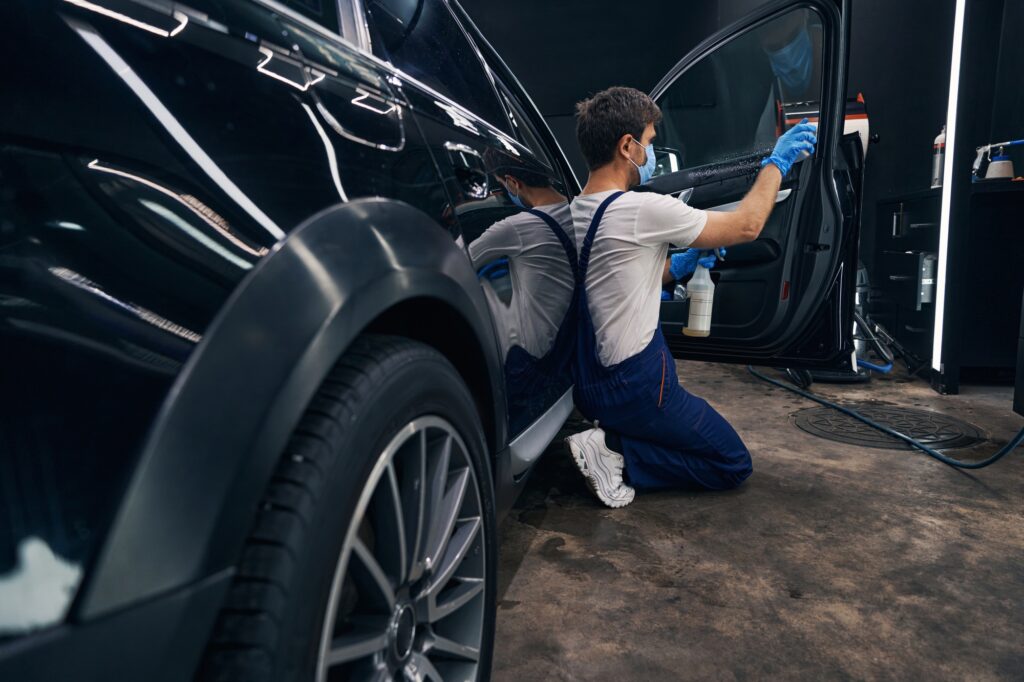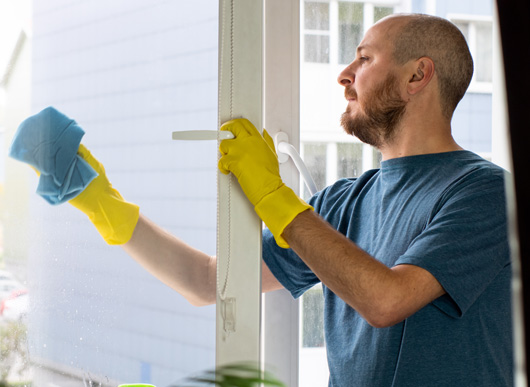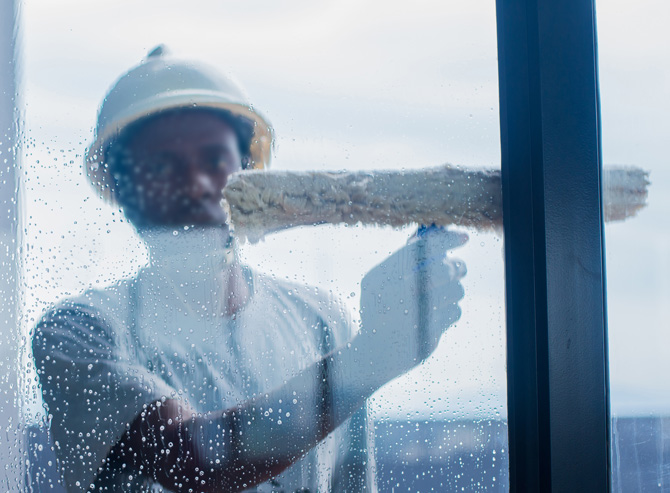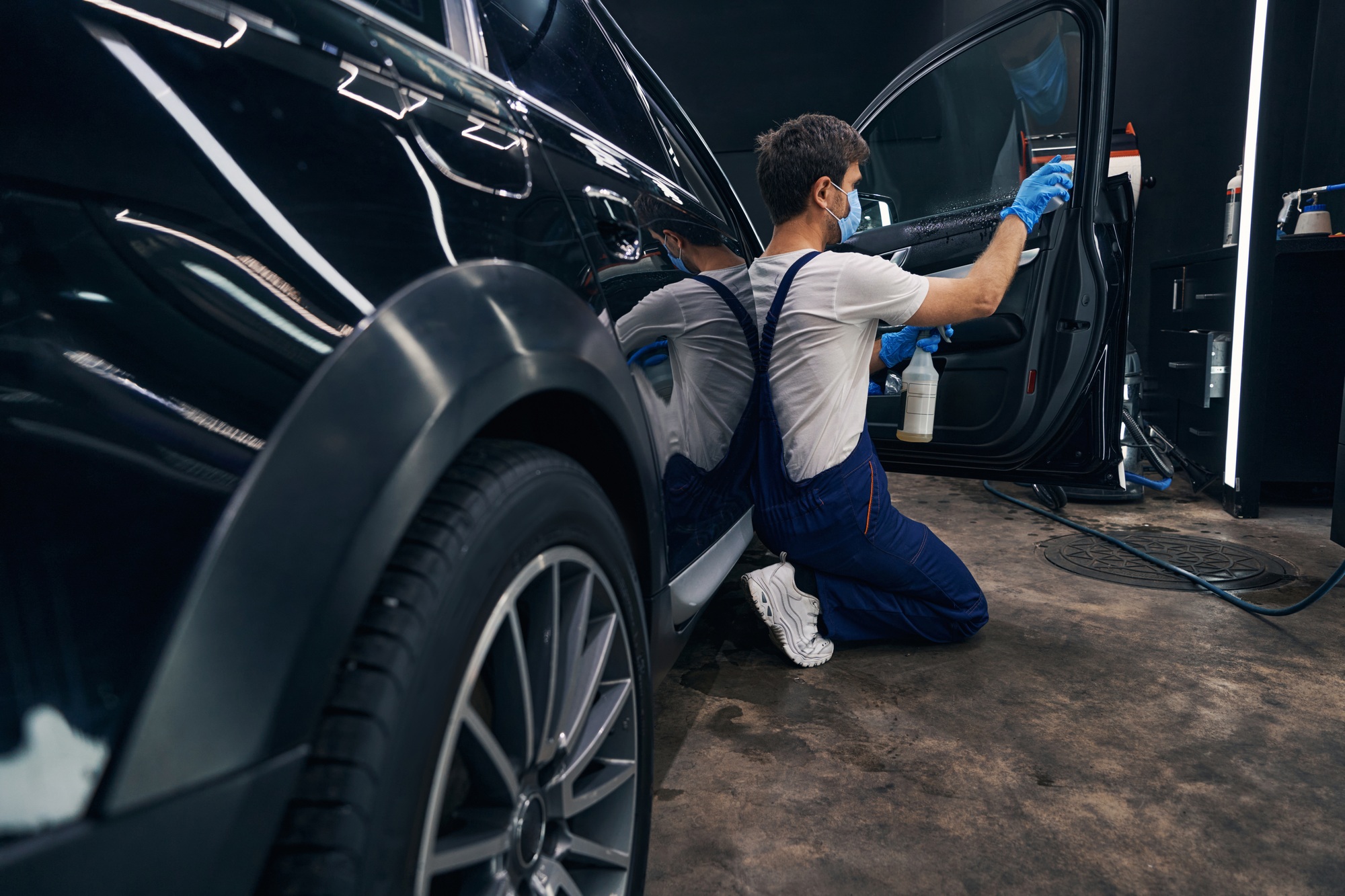Clean, streak-free car windows are more than just a cosmetic touch—they’re essential for safe driving. Clear glass improves visibility, reduces glare, and enhances your overall driving experience. While most drivers reach for generic household cleaners to get the job done, automotive glass has unique needs that demand a more careful approach. That raises the common question: what is the best glass cleaner for car windows?
From stubborn interior film to bug splatter and hard water spots, car windows are exposed to a variety of contaminants that require targeted cleaning methods. In this article, we’ll explore what makes car glass different, compare leading products (including homemade options), and help you understand how to safely clean your car’s windows for crystal-clear results.

Why Car Windows Need Special Attention
Car windows differ from household windows in several important ways. Automotive glass often has a factory tint, protective coatings, or built-in heating elements (especially on rear windshields). Using the wrong cleaning solution—particularly those with ammonia—can damage these features over time.
In addition, car windows accumulate dirt from unique sources. Interior glass collects off-gassing residue from plastic dashboards, while exterior windows face road grime, pollen, salt, and bugs. These contaminants require a formula that can cut through grease and film without leaving behind residue.
That’s why finding the best glass cleaner for car windows requires a blend of power, safety, and streak-free performance that’s formulated with your vehicle’s needs in mind.

Understanding What Makes a Great Automotive Glass Cleaner
When choosing a cleaner, there are a few core features that define a high-quality product for car glass:
- Ammonia-Free Formula: Ammonia can degrade window tint and cause interior materials to crack or discolor. Stick with ammonia-free cleaners specifically labeled as safe for automotive use.
- Streak-Free Finish: A good cleaner should evaporate quickly without leaving smudges or film, even in direct sunlight.
- Safe for Tint: Whether your windows are factory-tinted or aftermarket, your cleaner must be tint-safe to avoid damage.
- Residue-Cutting Ability: Interior haze and exterior grime require a degreasing agent that can lift oily films without excessive scrubbing.
According to Car and Driver, many of the top glass cleaners for car windows are designed to evaporate quickly, reduce static cling, and provide UV protection—all critical factors in keeping your windows clean and protected.

Top-Rated Store-Bought Glass Cleaners for Car Windows
Several brands stand out as consistently reliable when it comes to automotive glass care. While preferences vary, the following products are widely regarded as some of the best in the industry:
Invisible Glass Premium Glass Cleaner
One of the most popular options on the market, Invisible Glass is a top pick because of its streak-free performance and automotive-safe formula. It’s ammonia-free, quick to dry, and strong enough to tackle both interior haze and exterior road grime.
It also comes in both aerosol and trigger spray formats. According to The Drive, this cleaner is ideal for drivers who want professional-level clarity without worrying about damage to tints or trims.
Meguiar’s Perfect Clarity Glass Cleaner
Meguiar’s is a trusted name in auto detailing, and their glass cleaner is no exception. It features an anti-hazing formula that’s excellent for interior use and can be buffed to a flawless shine. It’s tint-safe and particularly effective on modern vehicles with delicate trim and infotainment systems near glass panels.
Chemical Guys Signature Series Glass Cleaner
This option is often favored by detailing professionals. It contains no ammonia or harsh chemicals and uses advanced polymers to lift grime and repel dust. Chemical Guys’ cleaner is a favorite for those who detail regularly or live in dusty or humid environments.
These products all offer excellent results, and any could earn the title of best glass cleaner for car windows, depending on your personal preferences and vehicle type.

Can You Use Household Glass Cleaner on Car Windows?
The short answer: you shouldn’t. Most household glass cleaners, such as Windex, contain ammonia. While ammonia can leave home windows sparkling, it can cause serious damage to your car.
Ammonia can weaken window tint over time, leading to bubbling or discoloration. It can also dry out rubber seals, cause dashboard plastics to fade, and even leave a sticky residue on touch screens or controls if oversprayed.
As Family Handyman advises, stick to products formulated for automotive use—or make your own using safe ingredients.

How to Make a Homemade Glass Cleaner for Cars
If you’re looking to DIY your way to sparkling windows, you absolutely can. The key is to use the right balance of ingredients and avoid ammonia at all costs.
DIY Car Window Cleaner Recipe:
- 2 cups distilled water
- 1/2 cup white vinegar
- 1/4 cup rubbing alcohol (70% or higher)
Mix these in a clean spray bottle. Shake gently before each use and spray lightly on the glass. Use a clean microfiber towel to wipe dry in circular motions, then follow with a second dry towel to buff.
This recipe offers a strong degreasing power thanks to the alcohol, while vinegar dissolves mineral spots and static-causing residue. It evaporates quickly and leaves a clear, streak-free shine—especially when used with microfiber cloths designed for automotive detailing.
Tips for Cleaning Car Windows Like a Pro
Knowing what is the best glass cleaner for car windows is only part of the battle—how you use it is just as important. Follow these techniques to get the most out of your cleaning session:
- Work in the shade or on a cool surface. Direct sun can cause cleaners to evaporate too fast, leaving behind streaks.
- Use two microfiber towels: one damp for cleaning, one dry for buffing. Avoid paper towels, which can leave lint.
- Roll down your windows an inch and clean the top edge. This often-forgotten area collects grime that causes streaks.
- Tackle the interior haze with a circular motion and elbow grease. This film is caused by plastic off-gassing and can be stubborn.
- Don’t forget the windshield. Clean both sides, and finish with a vertical swipe on the outside and a horizontal swipe inside so you can quickly spot which side has streaks.
For professional detailing, some experts also use clay bars and glass polishes to treat heavily stained glass, but those tools require skill and experience.

When to Clean Car Windows
Regular cleaning not only keeps your windows looking great—it also improves driving safety. Windshields should be cleaned weekly to maintain visibility, especially if you live in an area prone to dust, pollen, or road salt. Side and rear windows may need less frequent care but should still be cleaned monthly or after inclement weather.
Interior windows can be done every 2–4 weeks depending on use. If you smoke in your vehicle or use the defroster frequently, clean them more often to remove film and fog buildup.
What About Rain-Repellent Glass Treatments?
While not cleaners per se, rain-repellent coatings like Rain-X can significantly improve visibility in wet weather. These treatments cause water to bead up and roll off the glass, reducing the need for wipers at high speeds.
Before applying a product like Rain-X, thoroughly clean the windows using one of the options above. Then follow the manufacturer’s instructions carefully to apply a uniform coat. Reapply every few weeks or as needed for consistent performance.

Final Verdict: What is the Best Glass Cleaner for Car Windows?
After exploring store-bought options, homemade solutions, and expert techniques, the answer to what is the best glass cleaner for car windows depends on your specific needs.
If you’re looking for professional-grade performance with ease of use, Invisible Glass and Meguiar’s Perfect Clarity are top-tier choices trusted by both car owners and detailers. For those who prefer a natural or DIY approach, a homemade mix of distilled water, vinegar, and alcohol offers excellent results at a fraction of the cost.
Whichever route you choose, consistency and technique are key. Clean your windows regularly, avoid harsh chemicals, and use high-quality microfiber towels for the best results.
And if you’re in the Painesville, Ohio area and want to leave the work to someone else, D&L Window Cleaning is always here to help—with sparkling results on homes, storefronts, and even cars.
Helpful Resources:

